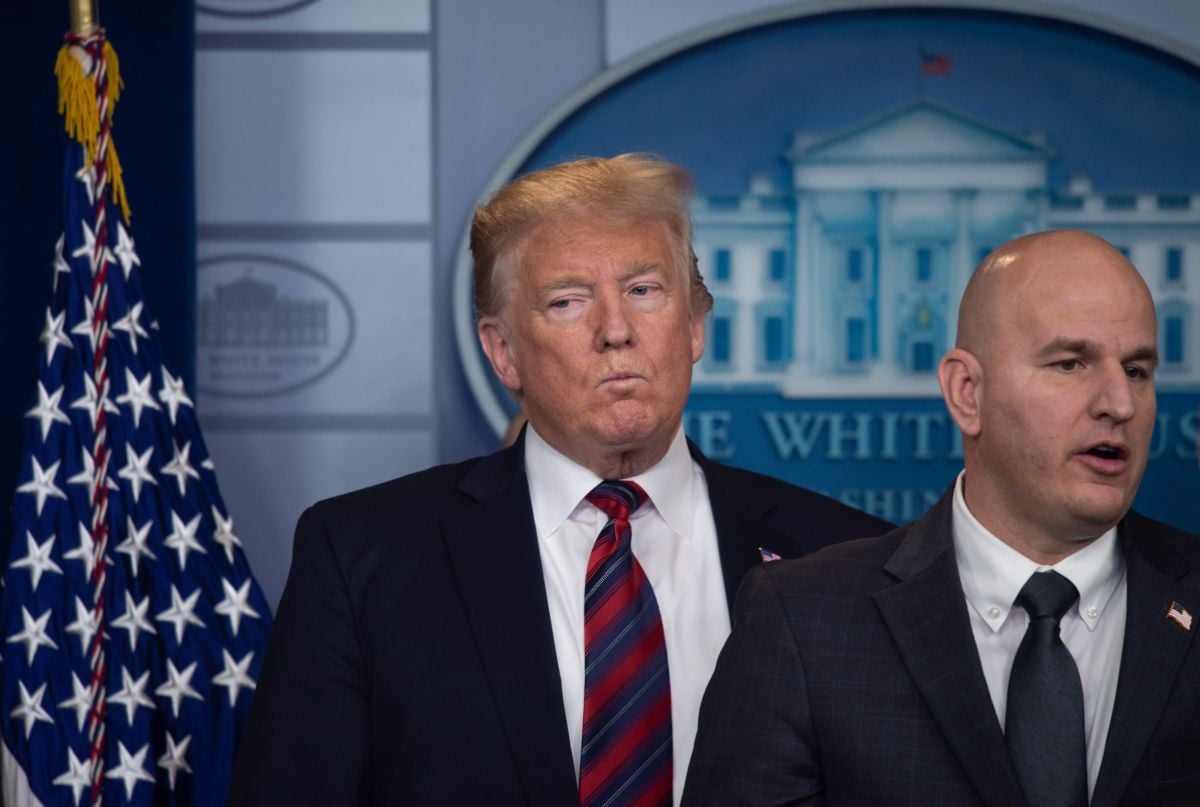Unlike President Donald Trump’s campaign trail vow to “drain the swamp” that never came to fruition—in fact, he has somehow managed to make Washington even swampier—House Democrats on Friday officially introduced sweeping legislation that progressives celebrated as a plan to actually confront the deep-seated corruption that has long pervaded the American political system.
Formally titled the For the People Act—or H.R. 1—and sponsored by Rep. John Sarbanes (D-Md.), the far-reaching bill would promote public financing of elections, reduce the influence of corporate dark money, strengthen ethics and financial disclosure rules, and bolster voting rights, which are under severe attack from the Republican Party, the Trump White House, and the right-wing Supreme Court.
“Everything in H.R. 1 is a no-brainer for anyone who actually cares about American democracy,” Morris Pearl, chair of the Patriotic Millionaires, said in a statement applauding the new legislation.
“It’s time to unrig our broken political system,” Pearl continued. “Our political leaders have been most responsive to the interests of their wealthy donors for too long while the needs of normal Americans go unaddressed. Before we can fix any of our other issues we need to put power back into the hands of the people, and H.R. 1 is an important, necessary first step to getting there.”
Progressive groups echoed Pearl’s praise for H.R. 1, describing the plan as an urgent and necessary solution to the corruption that has distorted America’s democratic process for decades.
In a tweet, Indivisible hailed the legislation as “a robust, comprehensive democracy reform package.”
In an op-ed for The Hill on Thursday, Sarbanes and Rep. David Cicilline (D-R.I.) laid outthe three central components of H.R. 1:
- First, we will rein in the influence of big money in our politics. That means bringing more transparency to our campaign finance system and empowering everyday Americans with a powerful new system that rewards and amplifies small donors.
- Second, we will make sure that public servants actually serve the public, not use their office for personal gain. That means strengthening ethics across all three branches of government, ending the revolving door in Washington and reining in lobbyists.
- Third, we will protect every citizen’s right to vote. That means promoting national automatic voter registration, expanding early and absentee voting, building the case to restore the Voting Rights Act, ending voter roll purging, safeguarding our election infrastructure from foreign attackers and cracking down on partisan gerrymandering.
As Sarah Jones of New York Magazine pointed out on Thursday, a chief benefit of H.R. 1 is that it goes beyond addressing the widespread and open corruption of the Trump White House and strikes at more systemic issues that far predate the billionaire real estate mogul president.
“H.R. 1 isn’t just about Trump, or the well-established discrepancy between his campaign rhetoric and his actions as president,” Jones wrote. “For Democrats, the bill is also an exercise in identity formation, a way to preview a corruption message that goes beyond superficial anti-Trumpism by incorporating a real critique of power in Washington.”
If passed, H.R. 1 would form a matching system in which eligible congressional and presidential candidates would receive $6 in public funds for every $1 raised from small donations. Such as system, argued Jones, would have a transformative impact on the way political campaigns operate.
“Public financing for elections would make candidates less reliant on major donors and corporate money, a problem that did not originate with Trump’s fateful campaign announcement,” Jones argued.
Lee Drutman, a senior fellow at New America, agreed with this assessment, writing for Vox, “Anything that takes members of Congress away from the gamut of lobbyist-sponsored fundraisers and cold-calling wealthy people and puts them in the living rooms of more representative groups of constituents would be a major game-changer for the kinds of concerns that filter up to lawmakers as top priorities.”
Pearl of Patriotic Millionaires concluded that H.R. 1 offers necessary and bold solutions to a system that has been held captive by those with the deepest pockets.
“It not only works to remove dark money from our political system to ensure every American has the same political power as millionaires like me, it also strengthens our democracy by making it easier to vote, limiting gerrymandering, and cracking down on corruption,” Pearl said.
Press freedom is under attack
As Trump cracks down on political speech, independent media is increasingly necessary.
Truthout produces reporting you won’t see in the mainstream: journalism from the frontlines of global conflict, interviews with grassroots movement leaders, high-quality legal analysis and more.
Our work is possible thanks to reader support. Help Truthout catalyze change and social justice — make a tax-deductible monthly or one-time donation today.
